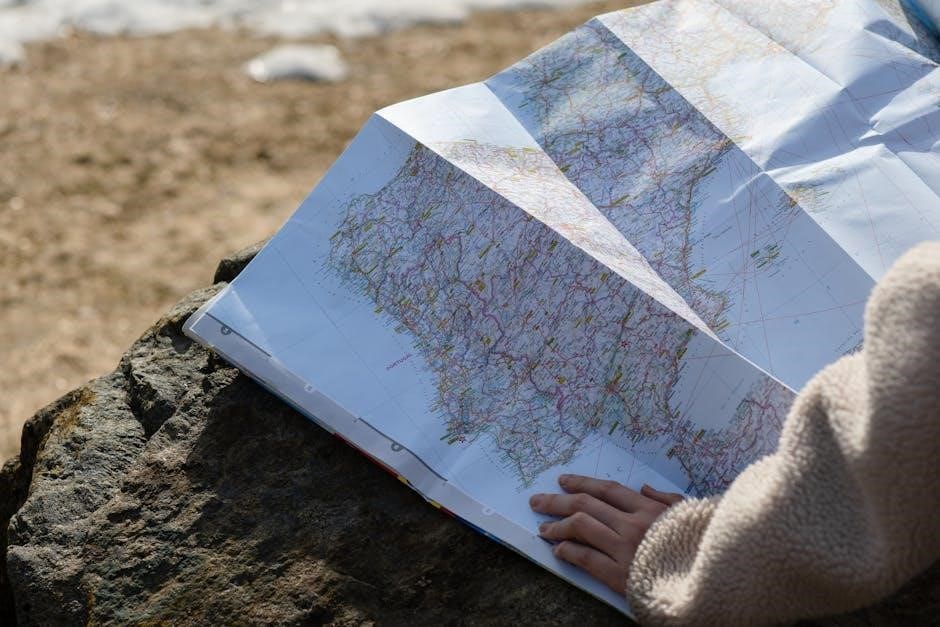
the ultimate guide to traveling when you have no money
Budget travel is about exploring the world creatively, even with limited funds. It requires resourcefulness, flexibility, and a willingness to step out of your comfort zone. By embracing affordable options like free accommodations, low-cost transportation, and free activities, you can experience the freedom of travel without breaking the bank. This guide will show you how to make the most of your journey with practical strategies and insider tips.
1.1 Understanding the Basics of Traveling with No Money

Traveling with no money requires creativity and resourcefulness. It’s about leveraging free resources, being flexible, and relying on your skills or time as currency. Start by identifying your priorities and minimizing unnecessary expenses. Research destinations with low living costs and explore free accommodation options like Couchsurfing or camping. Plan your itinerary around free activities and public transport to save money. Building a network of like-minded travelers can also open doors to shared resources and opportunities. Remember, traveling with no money isn’t about luxury—it’s about immersing yourself in experiences and cultures while staying within your means. With the right mindset, you can explore the world without breaking the bank.
1.2 The Importance of Budgeting and Planning
Budgeting and planning are essential for successful no-money travel. Start by creating a detailed budget, prioritizing essential expenses like food and transportation. Research destinations with low costs of living and plan your itinerary around free or affordable activities. Utilize tools like SEO keyword research to find budget-friendly options and tips for efficient planning. A well-structured plan ensures financial stability, allowing you to maximize your travel experience without overspending. By carefully allocating resources and staying organized, you can explore the world creatively and sustainably, even with limited funds.
1.3 Setting Realistic Expectations for Your Trip
Setting realistic expectations is crucial for a fulfilling no-money travel experience. Understand your financial and personal limits to avoid disappointment. Be flexible with accommodations, activities, and timelines, as budget travel often requires compromise. Prioritize experiences over material comforts, embracing the journey rather than luxury. Research destinations thoroughly to align your goals with what’s affordable. Remember, it’s okay to not have everything planned—spontaneity can enhance your adventure. By managing expectations and staying adaptable, you’ll enjoy a more stress-free and enriching trip, focused on meaningful connections and unforgettable moments rather than expensive indulgences.
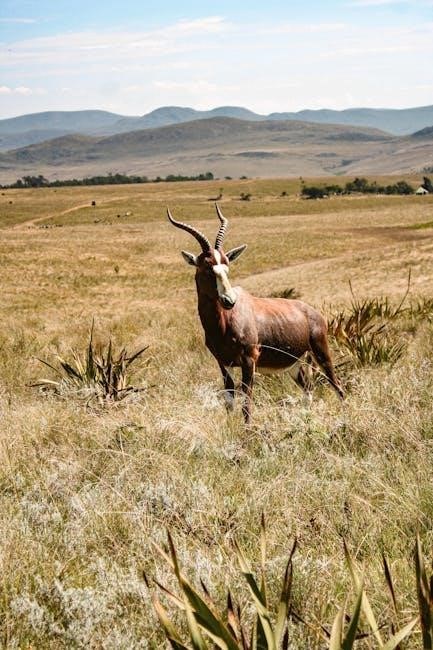
Saving Money on Accommodation
Discover cost-effective strategies to reduce accommodation expenses, ensuring your travel budget stretches further. Explore free or low-cost options and plan wisely to save money effectively.
2.1 How to Find Free or Cheap Places to Stay
Finding free or affordable accommodation is key to budget travel. Start by exploring platforms like Couchsurfing, which offers free stays with locals. Apps like Hostelworld or Booking.com often list budget-friendly hostels and guesthouses. Consider staying in dormitories or shared rooms to split costs. Look for last-minute deals or discounts on unsold rooms. Additionally, websites like Airbnb sometimes offer cheap options, especially outside city centers. Don’t hesitate to negotiate prices directly with hostel owners or ask for long-term stay discounts. Camping or staying in monasteries can also be cost-effective. Always research reviews and locations to ensure safety and convenience. With persistence and flexibility, you can find affordable places to stay without breaking the bank.

2.2 The Benefits of Couchsurfing and Hostels
Couchsurfing and hostels are excellent options for budget travelers. Couchsurfing allows you to stay with locals for free, offering a unique cultural experience and the chance to build meaningful connections. Hostels provide affordable dormitory or private rooms, fostering a social atmosphere where you can meet fellow travelers. Both options are cost-effective, with hostels often cheaper than hotels. Additionally, hostels frequently offer communal kitchens, saving you money on food. Many hostels also organize events and tours, enhancing your travel experience. Choose smaller, family-run hostels for a more personalized atmosphere. These options not only save money but also enrich your journey through shared experiences and local insights.
2.3 Camping and Wild Camping as Affordable Options
Camping and wild camping are excellent budget-friendly options for travelers. Camping allows you to connect with nature while spending minimal money on accommodation. Many campsites offer affordable rates, especially for long-term stays. Wild camping, or camping in remote, undeveloped areas, is often free, though it requires research to ensure legality and safety. Both options provide a unique way to experience the outdoors and save money. For wild camping, lightweight gear and a good tent are essential. Always respect local regulations and the environment. Camping is not only cost-effective but also offers a peaceful and immersive travel experience, making it ideal for those with limited funds.
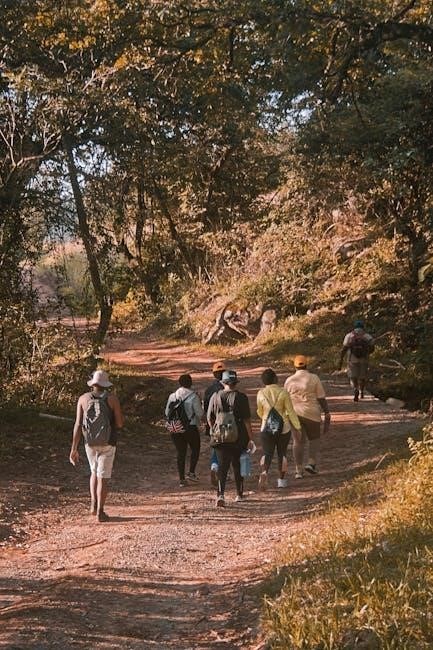
Affordable Transportation Options
Affordable transportation options include budget-friendly flights, public transport, and hitchhiking, allowing travelers to explore destinations without spending much. Planning and flexibility are key to saving money.
3.1 How to Find Budget-Friendly Flights
Finding budget-friendly flights requires flexibility and research. Compare prices across airlines, flight aggregators, and meta-search engines like Google Flights or Skyscanner to identify the cheapest options. Being flexible with travel dates, especially mid-week flights, can significantly lower costs. Booking in advance, often 2-3 months prior, secures better deals. Consider alternative airports or nearby cities, as prices can vary greatly. Additionally, signing up for airline newsletters and following them on social media often reveals exclusive promotions or error fares. Budget airlines may offer cheaper tickets but be mindful of additional fees for baggage or meals. Lastly, clearing cookies when searching can prevent price increases based on your browsing history.
3.2 Hitchhiking: Safety Tips and Best Practices
Hitchhiking can be a cost-effective way to travel, but safety is paramount. Choose well-lit, visible spots like highway on-ramps, and avoid isolated areas. Trust your instincts when assessing drivers; if something feels off, wait for another ride. Carry a map to explain your route and dress neatly to appear approachable. Stay visible, especially at night, by wearing reflective clothing or standing near lights. Research legal hitchhiking areas and avoid restricted zones. Offer to contribute to fuel costs or share snacks to build rapport. Share your journey on social media for accountability and have a backup plan, like savings for a bus fare. Stay positive and open-minded, as hitchhiking fosters unexpected connections and adventures.
3.3 Using Public Transport and Walking Tours
Public transport is an affordable way to explore cities. Research local bus, tram, or metro systems, which often offer cheap single tickets or day passes. Use journey planners or apps to navigate efficiently. Walking tours are another budget-friendly option to discover local culture. Many cities offer free self-guided tours or join group walks led by volunteers. Walking allows you to soak in the atmosphere and stumble upon hidden gems. Combine public transport and walking to maximize your exploration while keeping costs low. This approach not only saves money but also provides a deeper connection to the places you visit.

Working While Traveling
Working while traveling allows you to fund your adventures and immerse yourself in local cultures. Use platforms like Upwork or seek local gigs to earn income.
4.1 Work Exchange Programs: What You Need to Know
Work exchange programs offer a unique way to travel sustainably by trading work for accommodation, meals, or other benefits. Platforms like Workaway, WWOOF, and HelpX connect travelers with hosts worldwide.
These programs vary widely, from farming and teaching to hospitality and construction. Researching hosts and reading reviews ensures a positive experience. Clear communication about expectations and boundaries is key.
Work exchange not only saves money but also fosters cultural immersion and skill development. It’s an ideal option for long-term travelers seeking meaningful engagements without draining finances.
4.2 Freelancing and Remote Work Opportunities
Freelancing and remote work offer flexible ways to earn money while traveling, allowing you to maintain a steady income stream. Platforms like Upwork, Fiverr, and Toptal connect professionals with global clients in fields such as writing, design, and programming.
Remote jobs in tech, marketing, and customer service are also viable options, with websites like Remote OK and Nomad List catering to digital nomads. A reliable laptop and internet connection are essential tools for these opportunities.
Freelancing requires discipline and time management to balance work and travel. Building a strong portfolio and networking can help secure consistent gigs, enabling you to fund your travels without sacrificing flexibility and adventure.
4.3 Seasonal Jobs in Tourist Destinations
Seasonal jobs in tourist destinations provide a practical way to earn money while traveling. Many industries, such as hospitality, agriculture, and retail, hire temporary workers during peak travel seasons. Jobs like hotel staff, tour guides, or restaurant workers are common and often require minimal experience.
Destinations like ski resorts, beach towns, or national parks frequently offer seasonal opportunities. These roles allow you to immerse yourself in local cultures while earning a steady income. Websites like SeasonalJobs or CoolWorks specialize in listing such positions, making it easier to find work abroad.
While pay may be modest, these jobs often come with perks like free accommodation or discounts on local activities, making them a great way to extend your travels without depleting savings.
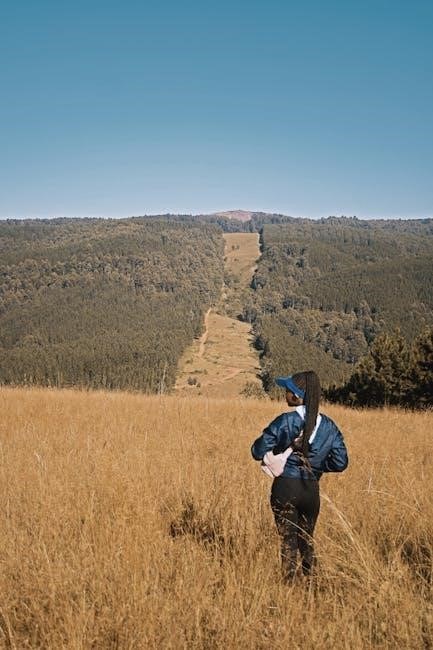
Maximizing Free Activities
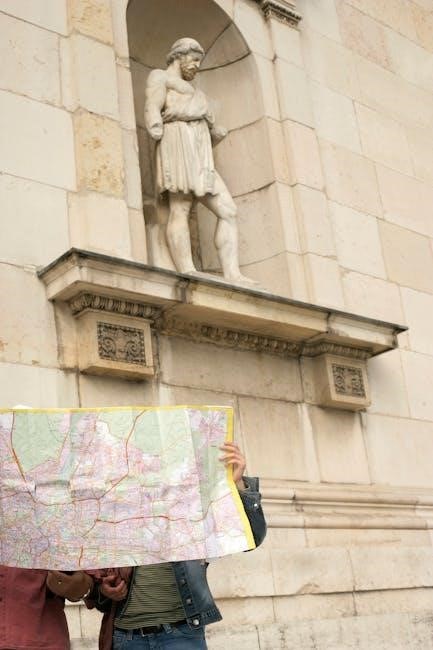
Exploring free attractions, such as iconic landmarks, parks, and cultural sites, allows travelers to experience destinations without spending money. Many cities offer free walking tours, museums, or events.
Researching local calendars and using apps like Citymapper or Eventbrite can help discover affordable or no-cost activities. Engaging with local communities also reveals hidden gems and authentic experiences.
5.1 Exploring Free Attractions and Landmarks
Many cities offer free access to iconic landmarks, parks, and cultural sites. Researching beforehand can help identify these gems, such as visiting Central Park in New York or strolling along the Acropolis in Athens.
Use apps like Google Maps or TripAdvisor to locate free attractions. Additionally, many museums offer free entry on specific days of the week or month, making them accessible to budget travelers.
Walking tours and self-guided exploration are also excellent ways to discover hidden gems without spending money. Local libraries often provide free guidebooks or maps to help navigate these attractions.
5.2 Taking Advantage of Free Walking Tours
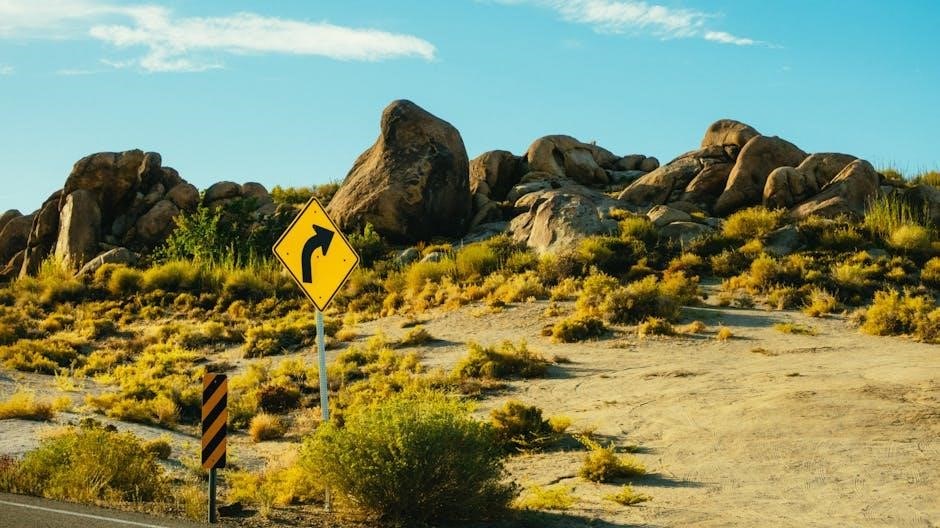
Free walking tours are an excellent way to explore a city without spending money. Many cities offer guided tours led by knowledgeable locals who share insights into history, culture, and hidden gems.
These tours are often tip-based, allowing you to pay what you can afford. Websites like Free Tours by Foot or local tourism boards can help you find these opportunities. They cover iconic landmarks, cultural districts, and lesser-known neighborhoods, providing a comprehensive city overview.
Walking tours also offer a chance to meet fellow travelers and gain insider tips. Always check reviews beforehand to ensure quality and safety, making this a budget-friendly and enriching experience for any traveler.
5.3 Attending Local Events and Festivals
Attending local events and festivals is a fantastic way to experience a destination’s culture without spending money. Many cities host free or low-cost events, such as outdoor concerts, markets, or cultural celebrations. These gatherings often showcase local traditions, food, and music, offering a rich and immersive experience. Websites like Eventbrite or local tourism boards can help you discover what’s happening during your stay. Timing your visit around festival seasons can also enhance your travel experience at no extra cost. Additionally, many events are family-friendly, making them accessible to all types of travelers. By engaging with local communities, you can create memorable moments while staying within your budget.
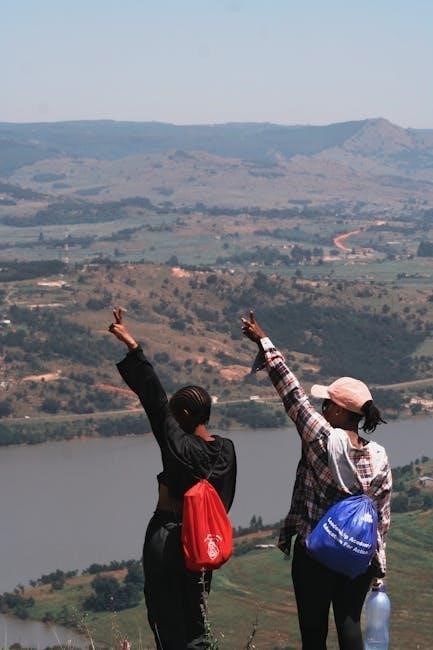
Staying Safe and Healthy on a Budget
Staying safe and healthy while traveling with limited funds requires careful planning. Prioritize affordable healthcare options, carry essential medications, and research local safety guidelines to avoid risks.
6.1 Essential Safety Tips for Budget Travelers
Staying safe while traveling with limited funds involves careful planning and awareness. Research your destination thoroughly, understanding local customs and potential risks. Keep valuables secure and avoid displaying signs of wealth. Blend in with locals to avoid attracting unwanted attention. Trust your instincts and avoid unsafe situations or neighborhoods. Stay connected with family or friends back home, sharing your itinerary regularly. Carry a basic safety kit with essentials like a whistle or a portable alarm. Avoid walking alone at night and use reputable transportation services. Remember, safety is a priority, and being prepared can save you from costly or dangerous situations during your travels.
6.2 Affordable Healthcare Options Abroad
When traveling with limited funds, accessing affordable healthcare is crucial. Research destinations with public healthcare systems, as many offer low-cost services to visitors. Look for clinics or hospitals that cater to budget travelers, as they often provide affordable care. Some countries have community health centers that offer free or low-cost consultations. Pharmacists in many places can also provide advice and medications without a prescription. Always carry a basic first-aid kit for minor injuries. Consider purchasing local health insurance if it’s inexpensive. Prioritize preventive care, such as staying hydrated and eating safely, to avoid costly medical bills. Knowing your options ensures you can address health issues without breaking the bank.
6.3 The Importance of Travel Insurance
Travel insurance is a critical safety net for budget travelers, providing financial protection against unexpected medical emergencies, trip cancellations, or lost belongings. While it may seem like an extra expense, it can save you from devastating costs. Look for affordable policies that cover essential needs like medical care and evacuation. Many budget-friendly options are available, so compare providers to find the best value. Always read the fine print to understand what’s covered. Some countries even require proof of insurance for entry. Investing in travel insurance ensures peace of mind, allowing you to focus on enjoying your journey without financial ruin from unforeseen events.